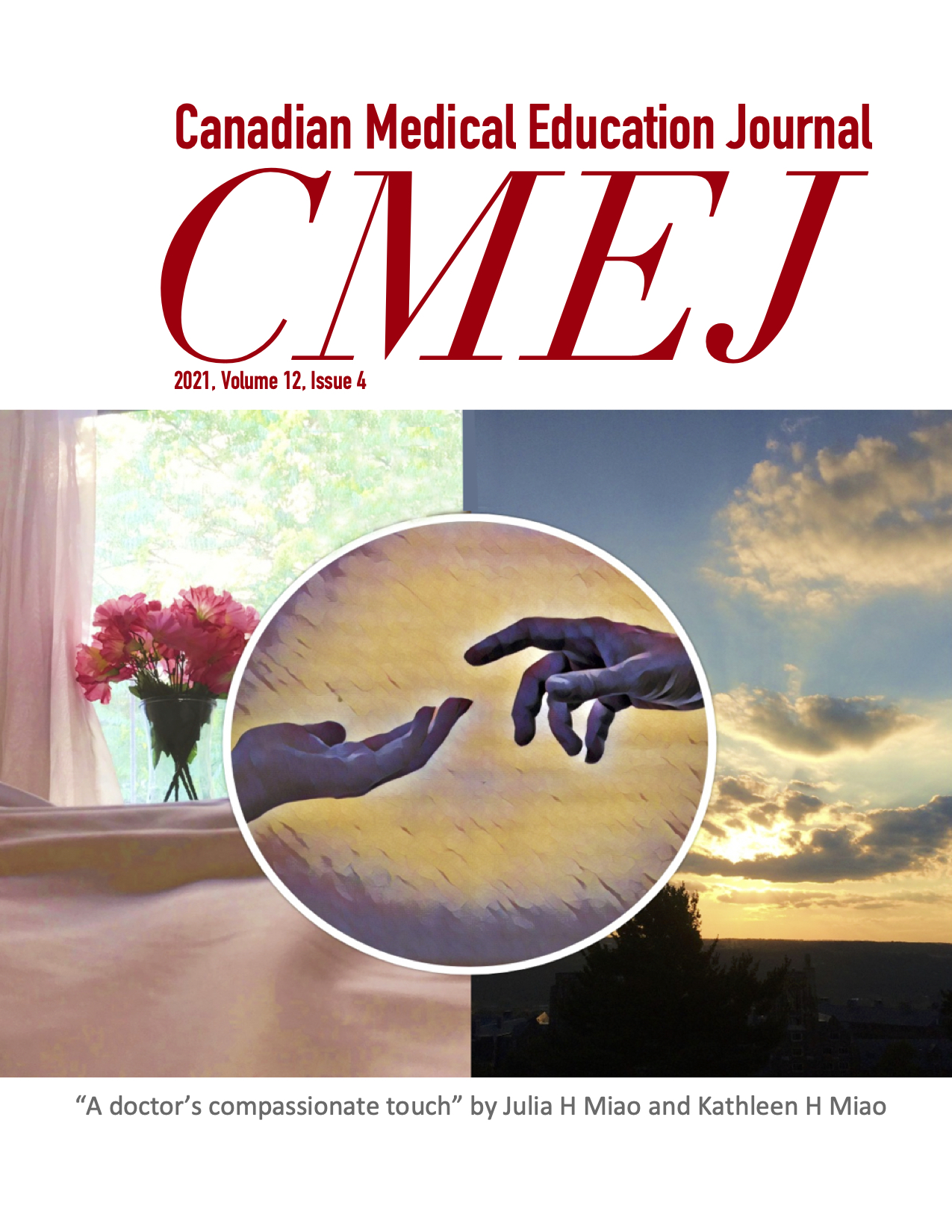Evaluating and implementing an opportunity for diversity and inclusion in case-based learning
DOI:
https://doi.org/10.36834/cmej.71412Abstract
Implication Statement
Problem-based learning (PBL) and case-based learning (CBL) often mention social identities only if this information is directly relevant to diagnosis, which can inadvertently perpetuate stereotypes in trainee learning. Using a student-developed resource entitled “Portraying Social Identities in Medical Curriculum: A Primer,” we analyzed cases for social identities, identified gaps, and proposed changes, including use of a validated name bank to reflect diversity as represented by local census data. Through this innovation, suggestions were provided to represent the social determinants of health in CBL cases. Other medical schools can use our innovation to improve the social diversity of their medical curriculums.
Downloads
Published
Versions
- 2021-09-15 (2)
- 2021-04-28 (1)
Issue
Section
License
Copyright (c) 2021 Sylvie Bowden, Abirami Kirubarajan, Amira Balbaa, Inna Berditchevskaia, Sarah Freeman, Natalie Klostermann, Mariam Naguib, Bochra Kurabi, Marcus Law, Jana Lazor

This work is licensed under a Creative Commons Attribution-NonCommercial-NoDerivatives 4.0 International License.
Submission of an original manuscript to the Canadian Medical Education Journal will be taken to mean that it represents original work not previously published, that it is not being considered elsewhere for publication. If accepted for publication, it will be published online and it will not be published elsewhere in the same form, for commercial purposes, in any language, without the consent of the publisher.
Authors who publish in the Canadian Medical Education Journal agree to release their articles under the Creative Commons Attribution-Noncommercial-No Derivative Works 4.0 Canada Licence. This licence allows anyone to copy and distribute the article for non-commercial purposes provided that appropriate attribution is given. For details of the rights an author grants users of their work, please see the licence summary and the full licence.











